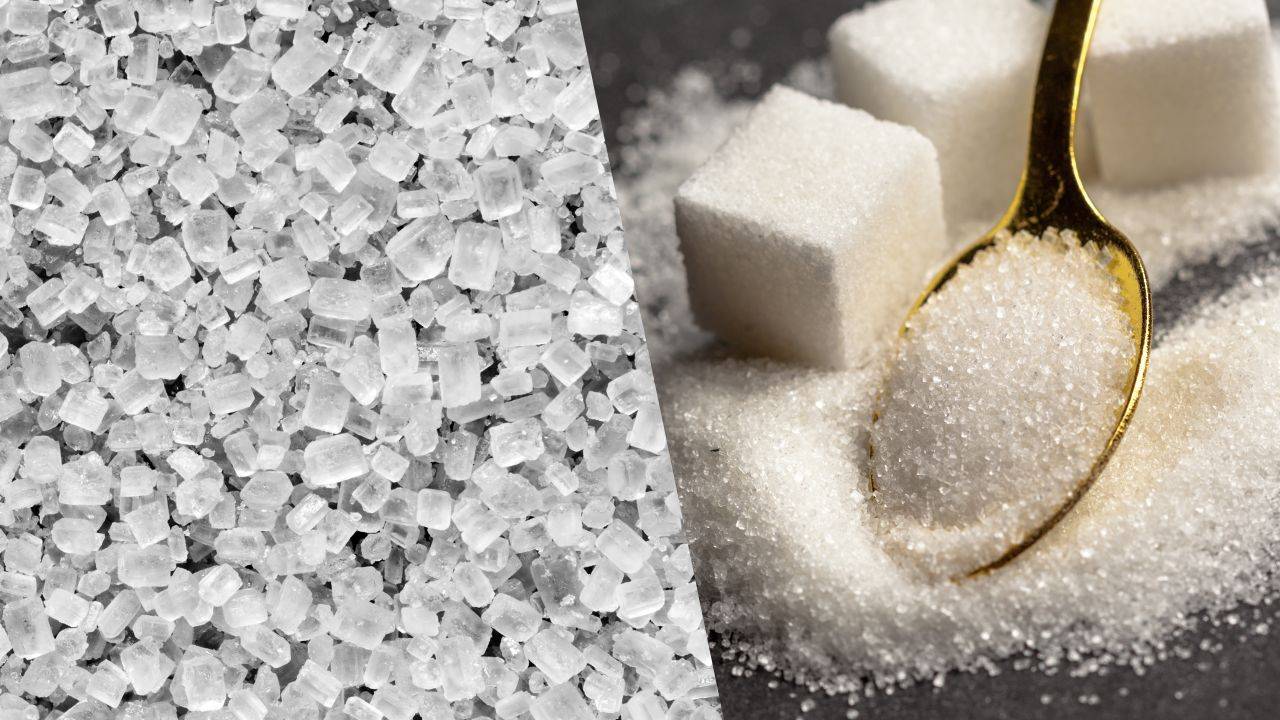
Mishri, also known as rock sugar, serves as a natural sweetener, although it's often referred to as rock candy or candy sugar. However, apart from its sweetness, it doesn't possess typical candy-like characteristics.
In contrast, sugar, commonly known as table sugar, is another sweetening agent. While both mishri and sugar originate from sugarcane (with sugar sometimes derived from sugar beets), their manufacturing processes significantly differ. Mishri is unrefined, whereas sugar undergoes a refining process.
During the transformation of sugarcane juice into sugar, there exists an interim stage that yields raw sugar with a somewhat dirty appearance. It is from this stage that a portion is extracted to produce mishri. The process involves mixing the raw sugar with water and milk, which is then poured into sizable drums equipped with threads. These drums are covered and stored in cellars, allowing mishri to crystallize on the threads as the solution gradually dries out.
On the other hand, sugar goes through further refinement, involving the use of various chemicals, to yield the familiar table sugar.
Mishri or Sugar Which is Better?
Mishri and sugar exhibit distinct properties due to their disparate production methods:
-
Mishri is considered an alkaline food, facilitating easier digestion, while sugar, being acidic, takes longer to digest.
-
Mishri possesses cooling qualities, whereas sugar is known for its heating attributes.
-
In line with Ayurveda principles, mishri is believed to harmonize the vata and pitta doshas within the body, a benefit not associated with sugar.
-
Mishri boasts several medicinal properties, whereas sugar lacks any such therapeutic qualities.
-
Since mishri undergoes minimal processing, it retains certain vitamins and minerals, whereas sugar contains none of these nutritional elements.
Types of Mishri
Mishri is typically available in the following types:
-
Mishri crystallized on a thread.
-
Small machine-made crystals of mishri.
-
Large crystallized lumps without any thread.
According to Ayurveda, it is recommended to use mishri with a thread as it represents the authentic and traditional form of mishri.
In today's market, mishri made from sugar is also prevalent, but it lacks the characteristic thread. To ensure that you are indeed purchasing genuine mishri and not just sugar, it is advisable to seek out "dhage wali mishri" or mishri with a thread. This distinction helps you make a more informed choice while buying mishri.
In conclusion, whether you choose Mishri (rock sugar) or sugar as your sweetener, depends on the specific requirements of your culinary endeavours and your personal taste preferences.
Sugar, with its neutral flavour and wide versatility, is a common choice for many recipes. On the other hand, Mishri's distinctive caramel-like taste and lower glycemic index make it a fantastic addition to traditional Indian dishes and beverages.
It's essential to consider factors such as flavour, nutritional content, and glycemic index when making your decision. Both sweeteners have their merits and drawbacks, but moderation is key to maintaining a healthy lifestyle, regardless of which option you select.
So, whether you go for the traditional sweetness of sugar or the unique character of Mishri, enjoy your sweet treats responsibly and savour the flavours they bring to your culinary creations.









